
When we think of the past, one of the first thoughts that runs through our mind is how people lived without electricity. Nowadays, we can’t even imagine a day without it because all of our appliances and devices run on electricity.
The truth is, however, that most homes don’t have enough power outlets to keep everything running and charged, so most of us rely on power strips without being aware that appliances that consume a lot of energy become dangerous fire hazards when we plug them into a power strip.
Although power strips are the thing to go to when it comes to charging your phone or power an entertainment setup, there are certain devices that should never be plugged into a power strip.
Air conditioners, space heaters, toasters, and other appliances that use high wattage can easily cause power strips to overheat, which can easily lead to a fire hazard.
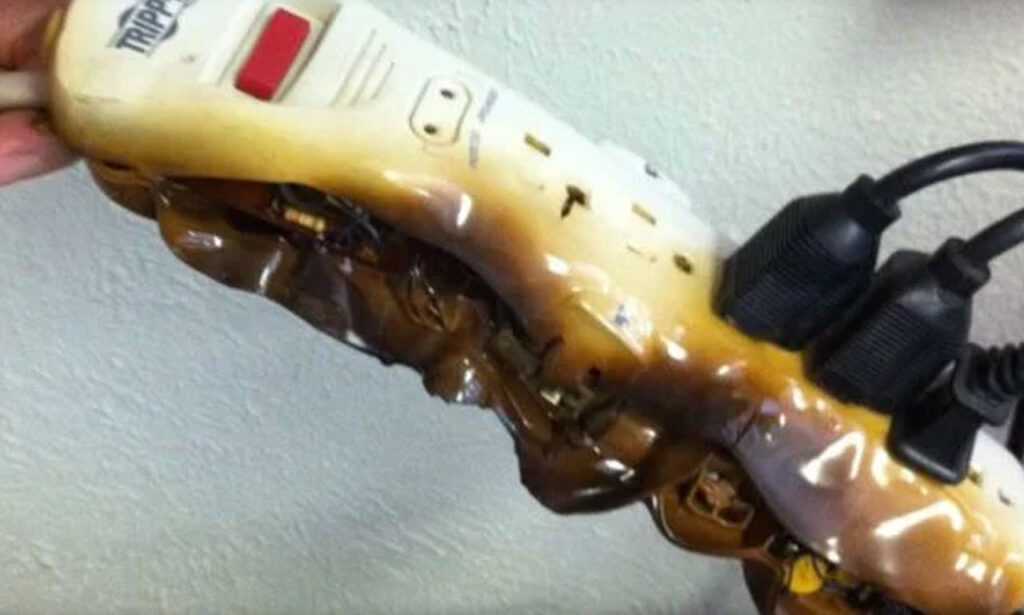
Even before plugging anything into a power strip consider the ammount of power they support. This is usually listed on the product itself.
High-capacity appliances need to draw a lot of power through an electrical circuit to work. Keep in mind that an appliance does not need to be large in size to draw large amounts of power.
Below is the list of appliances that should never be plugged into a power strip.
1. The oven: Even though the oven is not used continually, it is a power-hungry appliance that should not be plugged into a power strip. In fact, it should be plugged into its own wall outlet on its own circuit.
2. Refrigerator: Refrigerators require a lot of power and frequently cycle on and off which can easily overload a power strip and cause damage. Much like the oven, refrigerators require a wall outlet dedicated solely to powering the appliance.
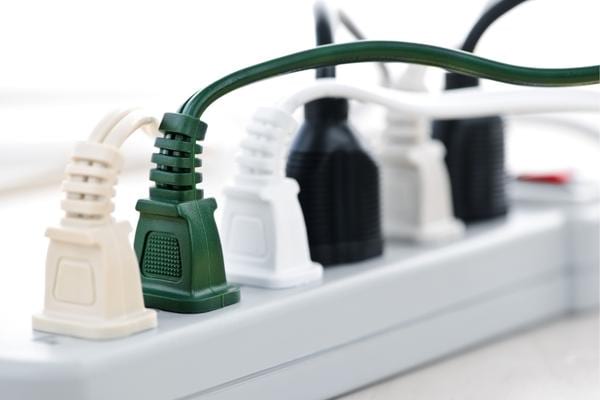
3. Washing Machine: When turned on, washing machines pull a lot of power. This is the main reason why these appliances shouldn’t share a receptacle with any other appliance or device.
Most washing machines use a max of up to 1400 watts, putting it dangerously close to the max load of most power strips. On top of that while working, washing machines are usually left unattended and work longer hours, at least an hour, which is long enough for a power strip to overheat.
4. Heating: Portable heaters should never be plugged into a power strip because most of them use 1,500 watts of energy on their high setting and they usually run for extended periods of time.
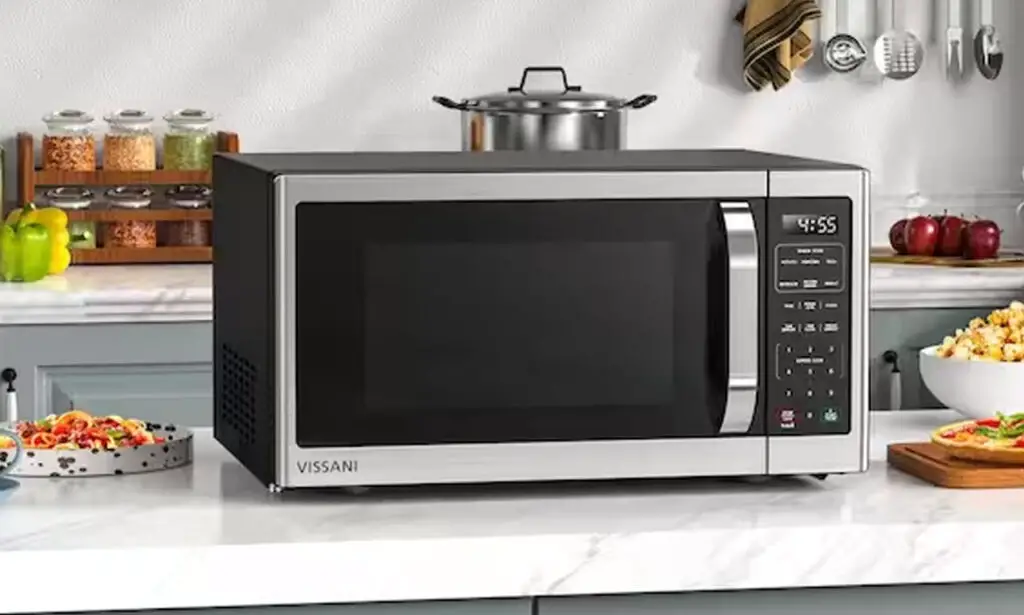
5. Microwave: Since they consume a lot of energy when used, most microwave ovens are plugged into their own receptacle and that is always a good practice.
6. Coffee Maker: Those who own a coffee maker are not fully aware of the power these appliances use, and this is why they should never be plugged into any sort of power strip or extension cord.
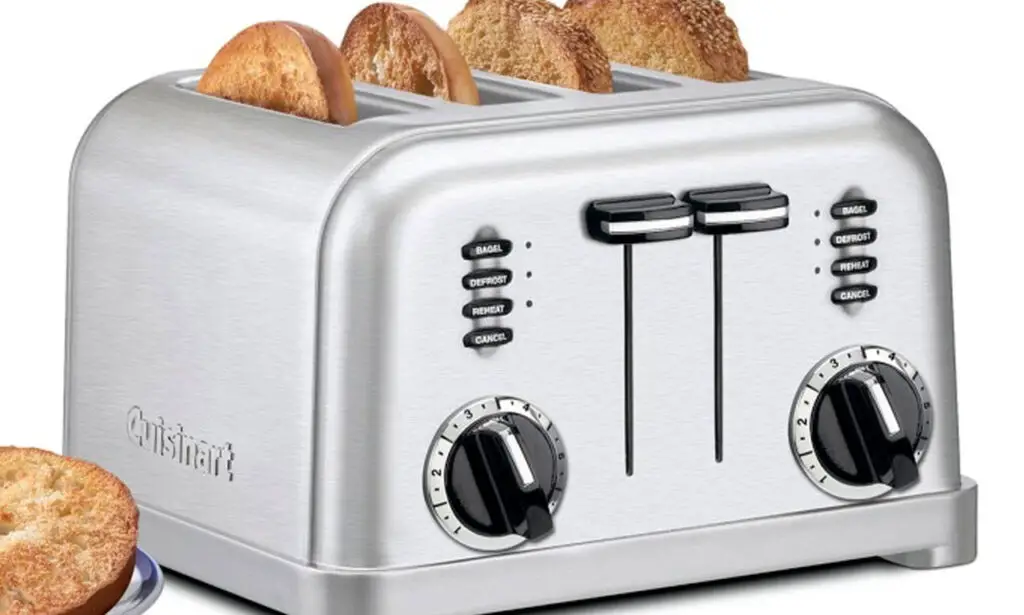
7. Toaster: You may think that browning up slices of bread or bagels doesn’t require a lot of energy, but the truth is that toasters use a lot of energy when in use and they should be plugged directly into the receptacle rather than a power strip.
8. Another Power Strip: Power strips are not meant to be used in conjunction with another power strip, although many people do exactly that. This, however, violates most safety codes because it can easily lead to overloading the electrical system.
9. Electronics (Computer, TV, Router): These types of electronic devices don’t necessarily use a lot of power on their own, but they are sensitive to surges and you can find yourself with a burnt out computer or TV very quickly if you plug them into a power strip.
If you want to protect these sensitive devices from power surges, opt for a power strip that functions as a surge protector.
TV Legend Gone Too Soon: Fans Mourn the Loss of Beloved Host
At the age of 88, Phil Donahue, the famous talk show host who changed daytime TV, passed away on Sunday. After a long illness, Donahue died peacefully at home, surrounded by his loved ones. His wife, actress Marlo Thomas, and his four children were by his side in his final moments.

Phil Donahue was born in Cleveland, Ohio, in 1935, and he made a huge impact on television during his 50-year career. He is best known for *The Phil Donahue Show*, a groundbreaking talk show that started in 1967 and ran for 29 years. It became one of the longest-running syndicated talk shows in history, with millions tuning in daily when it was at its peak.
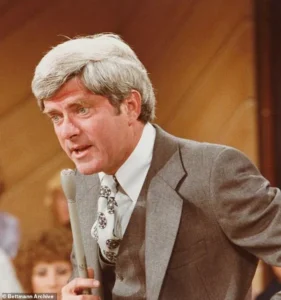
The show began in Dayton, Ohio, but after moving to Chicago in 1974, it gained national attention. What made Donahue stand out from other hosts was his unique style. He introduced a format where the audience could ask questions and talk to the guests directly. This interactive style was new and changed the way people watched talk shows, making the audience feel like they were part of the conversation.

*The Phil Donahue Show* tackled many controversial topics for its time, such as abortion, women’s rights, civil rights, and LGBTQ+ issues. Donahue didn’t shy away from tough conversations, even if they were controversial. He believed that television could be used to make positive changes in society and wanted to give a voice to those who weren’t often heard.
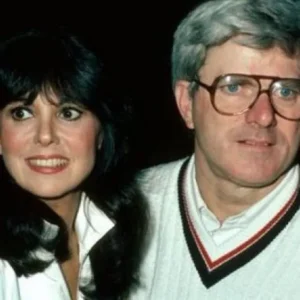
Donahue was known for balancing serious discussions with lighter moments. His show focused on important issues, unlike many other shows that centered on celebrity gossip. The show featured major historical moments, like Nelson Mandela’s first TV interview after being released from prison in 1990. Donahue invited politicians, activists, and everyday people to his show, helping start conversations that made viewers think and question their beliefs.
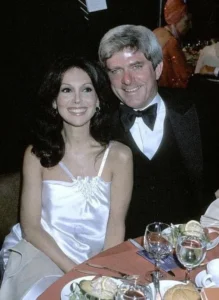
Throughout his career, Donahue supported women’s rights. His show became a go-to place for important discussions about social issues that mattered to women. He often invited leading feminists like Gloria Steinem and Betty Friedan to talk on his show, making it an essential platform for the women’s rights movement. His willingness to discuss topics like LGBTQ+ rights in the 1970s and 1980s, when they were less accepted, solidified his role as a progressive voice on TV.

Despite his demanding career, Donahue always prioritized his family. He married Marlo Thomas in 1980, and they had a strong, loving marriage. Both were passionate about social justice and worked together on causes like racial equality, women’s rights, and children’s issues.
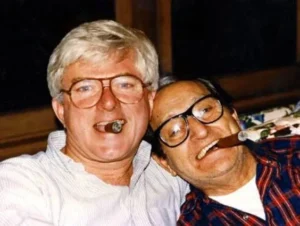
Donahue received many awards throughout his career, including 20 Daytime Emmy Awards. He was also inducted into the Academy of Television Arts & Sciences Hall of Fame in 1996, confirming his place as one of the most important figures in American TV history. He also wrote several books, including *Donahue: My Own Story*, a memoir about his life, and *The Human Animal*, which explored human relationships.

Donahue’s influence on the talk show format paved the way for future hosts who wanted to mix entertainment with meaningful content. Shows like *Ellen*, *Dr. Phil*, and *The Oprah Winfrey Show* may not have existed without his groundbreaking work. Oprah Winfrey once called him “the man who showed us all that television could make a difference,” crediting him as a major influence on her own show.

Even after stepping out of the public eye in the mid-1990s, Donahue remained involved in social issues, especially as an anti-war activist. He made a brief return to TV in the early 2000s with a political talk show on MSNBC. He remained a respected voice, often speaking at events and sharing his thoughts on important social topics.
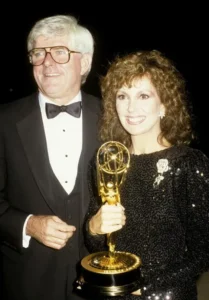
As news of his passing spread, tributes poured in from politicians, celebrities, and fellow talk show hosts. They praised him as a visionary who forever changed television. Marlo Thomas released an emotional statement on behalf of the family, saying, “Phil was a man of integrity and compassion. He believed that conversations could bring people together, teach, and heal.” His work touched millions of lives, and his legacy will live on through those he inspired.

Beyond his contributions to television, Phil Donahue will be remembered for his dedication to justice, fairness, and the belief that everyone’s voice matters. He was a true pioneer whose impact went beyond entertainment, shaping the cultural conversations of his time. With his passing, a remarkable chapter in television history closes, but his influence will be felt for years to come.



Leave a Reply